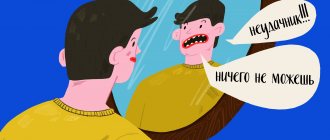Link in the National Electronic Library: https://elibrary.ru/item.asp?id=18024107
Ministry of Culture of Russia Federal State Educational Institution of Higher Professional Education Tyumen State Academy of Culture, Arts and Social Technologies Lecture Topic: Life path. Life strategy. Life goal. Life perspective Developer: 1st year graduate student in the specialty “Ontology and theory of knowledge” Novikov D. M. Tyumen, 2010
Life path. Life strategy. Life goal. Life perspective
Ein Denker ist ein Mensch, dem es bestimmt war, durch das eigene Schauen und Verstehen die Zeit symbolisch darzustellen. Er hat keine Wahl. Oswald Spengler
Review of recommended literature
Usually, within the framework of the course “Psychology of Higher Education” on this topic, the works of humanistic psychologists are recommended, for example, “Man in Search of Meaning” by Viktor Frankl or no less interesting works of Soviet researchers, for example, “In Search of Self” by Igor Semyonovich Kon. In the aforementioned work of the latter there is a chapter called “The Road of Life,” where problems that concern us today are discussed.
However, I would like to draw your attention to the literature that must necessarily be present in your consciousness as a cultural background. Firstly, specialization in the field of cultural studies imposes its responsibility. Secondly, in artistic, religious, and philosophical literature, the problems of life’s path are defined more fully and deeply than this or that direction of psychological science does. Thirdly, Lev Nikolaevich Tolstoy once wrote that educated people read so much books that seem important and complex, but are forgotten over time, and do not read books at all that cost a penny and are written in a language understandable to everyone to the common man, and have existed for a long time, and define the concepts of good and evil for many peoples. These books set out the religious teachings of the teachers of mankind, therefore L.N. Tolstoy first of all recommended (and I, in turn, repeat this recommendation) to read the Bible and the Koran. On my own behalf, I will add that in our case I will be interested in such books of the Bible as “The Book of Job” and “The Book of Ecclesiastes” translated by M. I. Rizhsky. This is what concerns the Judeo-Christian component of our Russian culture. In Antiquity, the problems of life's path, fate and strategy of behavior within the framework of destined fate were classically posed in Homer's Iliad and in numerous Greek tragedies. The life paths of Hector, Achilles, Oedipus, and Orestes should stand before our mental gaze. At the end of the Middle Ages, Dante Alighieri wrote “The Divine Comedy”, the plot of which is both a journey through the circles of hell and a description of the life path of the second half of life (remember that the comedy itself begins with the words “Earthly life is halfway through”). When describing possible life strategies, I will rely on the work of Max Weber “Protestant Ethics and the Spirit of Capitalism” and on the work of Alexander Kupriyanovich Sekatsky “Zhuang Tzu and the Taoist Emelya”, published in his book “Applied Metaphysics”. And another very important work, which I recommend not only reading, but also listening to in the author’s performance, is a course of lectures by Merab Konstantinovich Mamardashvili “Psychological topology of the path.”
Having determined the range of sources and the range of reading, let’s move on to the lecture itself, in which its own circles and turns await us.
Lecture outline
- Life Path Subject
- Life path concept
- Student/graduate student and his life perspective
Life Path Subject
It is impossible to talk about the path of life without getting to know those who will follow this path. Science is introduced to the subject of life's journey primarily by Rene Descartes as one of the founders of European rationalism. It is Cartesian rationalistic psychology that is opposed by a complex of scientific disciplines, which, thanks to the method they use, can be designated by the term experimental psychology.
Psychology as a science, in this case, is possible if it not only builds one or another system of rational, logically consistent statements, but also allows the truth of its statements to be verified in an experiment and allows for their fundamental experimental falsifiability. In observation and experiment to such a science, a person is given as a special object (an object of methodological observation and experiment), in which psychology singles out a special subject inherent in it as a science and studies not a person, but precisely this subject. This could be the psyche, mental processes, forces, function and much more.
Let's look at behaviorism, for example. In 1913, John Watson proposed studying human behavior in the same way that natural science studies its objects. The purpose of this study was to establish a connection between a person’s reaction (behavior) and the stimulus that causes this reaction. What is observable under these conditions is both the stimulus and the response to it. Thus, behaviorism as a scientific psychology claims to be scientific: behaviorism meets the criteria of verification and falsification (the assumption of a connection between stimulus and response can be confirmed or refuted in the corresponding experimental observation), behaviorism meets the criterion of objectivity (observed facts of stimulus and response do not depend on the observer ), behaviorism meets the predictive criterion (knowledge about the presence or absence of a connection between a stimulus and a reaction allows one to predict a person’s behavior), behaviorism even allows one to control a person’s reactions by controlling the stimuli associated with them. The benefits of behaviorism would be even more indestructible if it were not for the anecdote cited by John Searle in his book “Rediscovering Consciousness.”
Behaviorists are not only scientists, but also people, which means they are men and women, and men and women tend to marry. And it so happened that in the family the husband and wife are scientists, studying human behavior. During the day they work in the research laboratory of a respected university, and at night, like all people, they do on the marriage bed what is proper and should be done by a wife and husband. Just after such a lesson, one of them says to the other: “You know, I watched your reaction and I can say that you liked the stimuli, but I didn’t see my reaction and I don’t know if I felt just as good?”
The absurdity of such a situation does not require the presentation of other arguments against the concept of behaviorism, because even one joke is enough to understand what is wrong in this science. There is no person in it.
Another example is the psychoanalysis of Sigmund Freud, who at the beginning of the 20th century proposed a remarkable concept of human personality, based on facts observed in the clinic. These facts demonstrated the complex structure of the human psyche: the identification of the structure of Super Ego, Ego, Id. In the Id, instinctive drives such as Eros and Thanatos stand out. Psychoanalysis describes the mechanisms of interaction between instinctive drives, rational attitudes, value preferences, and much more.
And along with these brief formulations of the essence of psychoanalysis, let us remember the following image. “Let us liken the soul to the united force of a winged pair of teams and a charioteer. <…> Of the horses, we say, one is good and the other is not. <...> One of them is a beautiful article, slender in appearance..., loves honor, but at the same time is reasonable and conscientious... And the other is hunchbacked, obese..., full-blooded..., he is deaf and barely obeys the whip and goads.” Isn't this an image of the psychoanalytic personality structure? Is this not another Platonic myth put into the mouth of Socrates?
However, what worries me in psychoanalysis is not the proximity to ancient myth-making, but the fate of the unfortunate charioteer. After all, it is not he who chooses this or that life path, this or that life strategy is not subject to him, it is not the horses that open up before him, but the horses. Unconscious drives turn out to be the true heroes of the drama of life. What about the human self?
Whatever psychology as a science offers as the subject of its study, this subject is not a subject of life’s path, cannot independently choose the strategy of its own life, it turns out to be just a system responding to stimuli, a toy of unconscious forces, a product of social relations, the result of natural, historical, cultural and any other development. However, in no scientific psychological concept is a person the subject of his own life. Science cognizes objects, not living people. Philosophy, in my opinion, is a worthy choice for a person to understand himself.
Here it is most appropriate to return to the thinker with whom the rational part of European science began, Rene Descartes. At one time, he thought about the foundation of all sciences, a strong, indestructible foundation. To achieve this, all other foundations are questioned, leaving no stone unturned. Sense bases are doubtful, since the evidence of the senses is not only doubtful, but also false in a sleepy or painful state. Rational foundations are questionable, since from his own experience in mathematics, Descartes knew that the human mind makes mistakes in solving problems, in carrying out proofs, for this is precisely the human, and not the divine, mind. And what remains if both feelings and reason are doubtful? Doubt itself remains. And along with doubt is the subject of this doubt. In philosophy, the subject found by the method of radical doubt is usually denoted by the words “Ego cogito”.
At this point we can leave Descartes and ask ourselves the question about the essence of the Ego cogito, about the essence of the human I. Is this I a body? To answer this question, you can look at your hands and ask: “Whose are they?” You can look at your feet and ask: “Whose are they?” Look, ask and answer: “Mine. This is my body." And if the body is mine, then am I the body myself? After all, a granite monument is not granite, and the same thing could be made of marble, copper, gold. And if my soul is mine, then am I myself a soul? Ego cogito is neither body nor soul. And therefore Ego cogito is the main character of the situation of choice, a nomad, a traveler of life. The disclosure of these meanings requires a separate discussion, but now it can be stated that the true subject of life’s path is discovered by the method of radical doubt and is designated by the term “I”. Consequently, you yourself are the subject of your own life, but are you living your own life?
Life path concept
Until recently, one has heard the definition of life as a way of existence of protein bodies. This definition, with well-known continuations, is repeated as the most scientific definition of life. Perhaps someone sees themselves as a protein body, but it was noted above that the Ego cogito is definitely not a protein body.
We find a different understanding of life, for example, in M.K. Mamardashvili, who in his lectures “Psychological topology of the path” says: “Life is an effort in time.” This is an accurate psychological observation. What appears to be alive may not be alive at all. An alien thought, so alien that it is routinely repeated without thinking, is a dead thought. The typical feeling, which is impossible to say whether you feel it yourself or whether these are the circumstances that dictate the words and thoughts about the feeling, is actually dead. Death reigns in words that do not contain me. Life turns out to be strongly intertwined with death, and death turns out to be such a part of life that it threatens to leave no room for a living feeling, a living word. For a person who realizes this, life is truly an effort in time. And every thinker, doubter, and seeker of his own path finds himself in a situation where it is he who must carry out this effort in time, and he cannot consciously do anything else. This is something that everyone should do themselves. You have to live on your own, you have to love on your own, you have to know on your own. This is exactly how Adam himself, without any help, once came to know Eve.
You can read about this same topic, which I noted from M.K. Mamardashvili, in Max Frisch’s novel “I Will Call Myself Gantenbein.” I will record one thought here: in order to understand the essence of life’s path, it is necessary to clearly be aware of the connection in the human subject of life and death, of the psychological problem of one’s own and someone else’s.
Understanding the path of life in psychology turns out to be so closely connected with understanding the purpose of life that it is no longer possible to do without books like “Man’s Search for Meaning” by Viktor Frankl. But even more, in my opinion, one cannot do without the subtle psychological observations of L.N. Tolstoy, a Russian writer and thinker.
The essence of Tolstoy's observations lies in the difference in psychological states between a person who is looking for an answer to the question “Why live?”, and a person who is looking for an answer to the question “How to live?” After all, if in a meaningless life you look for goals that will justify all the nonsense, then these searches are in vain. Four outcomes await a person in this situation. Firstly, a frivolous misunderstanding of the emptiness and meaninglessness of life. Secondly, satisfaction with temporary pleasures. Thirdly, suicide. Fourthly, a miserable existence with the consciousness of the meaninglessness of life. But you don't have to live a meaningless life. The question is not what is the meaning of a meaningless life, but how to live a life that has meaning. L.N. Tolstoy does not propose a search for the meaning of life, but a meaningful life itself.
Other equally important remarks are A.K. Sekatsky’s comments on the meaning of life. In his article “The meaning of the question “What is the meaning of life?”,” he compares what seems to many to be the ultimate questioning with a child’s language game, in which one asks: “Say “cigarette butt”!”, and the other, eventually succumbing to the begging, repeats the cherished word “cigarette butt” and receives the answer: “Your father is an idiot!” The request “Say: “What is the meaning of life?”!”, being intellectually sane, cannot be taken seriously. This request is an overly simple language game in which the thinker, who has lost his sense of intellectual taste, plays the role of a real fool.
The most striking are two strategies for a meaningful life path. One of them is described in Max Weber’s work “The Protestant Ethic and the Spirit of Capitalism.” In the world created by God after the fall of man, only the elect are predestined by the Lord to salvation. God calls chosen people to Himself, and the strategy of life is to recognize this calling (German “Beruf”, English “calling”) and follow it. This is not just a professional orientation received after passing one or another psychological test, it is a situation of choice between eternal life and eternal destruction, a condition in which not only your temporary existence is at stake, but also your own eternal life. When the stakes are extremely high, we can talk about a person’s high destiny. At the same time, it turns out that success in worldly affairs is a sign of successful recognition of one’s own calling, which in Russian we call a profession.
Another strategy is described in the work of A. K. Sekatsky “Zhuang Tzu and the Taoist Emelya.” What is a man of action? A successful warrior, a successful builder, a successful farmer - each has a certain set of properties that makes him skilled in one calling or another. Your speed, strength and agility may make you a skilled warrior, but will you be in demand at the same time? Do you think that the properties that can make you a warrior, a builder, a farmer, a businessman, a politician, a designer, a programmer are what belong to you? What will happen to the hare who imagines that “having tasty and tender meat” is precisely a property, and not what makes a hare attractive to a wolf? Every property, in turn, places you in relation to another and thereby becomes not so much your own property as a property for another. Your demand turns out to be a demand not for yourself, but for another, perhaps not only alien, but also hostile. By working in the field of your calling, are you not increasing the good of your enemy? Emelya’s answer to the call to go get water can be only one: “Reluctant!” The actions performed by Emelya coincide with the complete inaction of lying on the stove. And yet, this fairy-tale strategy also turns out to be rewarded with quite worldly blessings, such as a princess and an entire kingdom to boot.
So, the path of life is a path that cannot be taken by another person, a path that you will have to walk yourself. The situation of choosing a life path is possible if and only then when you have to choose between life and death, when your own life is at stake. Whatever life path strategy you choose, the emerging life perspective will lead you along the edge of the abyss, as your only personal path.
The student and his life perspective
Having outlined an understanding of the path of life and its subject, you learn that this is an understanding of your own path and yourself, what Dante said: “Having completed half my earthly life, I found myself in a dark forest...” And having found myself in this situation, it is worth at least outline possible guidelines and outcomes.
When entering a university, a student must have the idea that it is possible to study a particular profession in order to then successfully realize his potential in practical activities. Such a student knows well the answer to the question: “Who are you studying to be?” Another opportunity for a student is the study of one or another science, immersion in systems of theories and experiments, the production of new knowledge, and the approval of new technologies. Such a student knows well the answer to the question: “What are you studying?” This is the kind of student you are most likely to meet in graduate school.
A graduate student also faces a certain alternative. While studying a particular area of knowledge, you can give lectures, conduct seminars, and do most of the teaching work. On the other hand, you can spend most of your time in a research laboratory, working at one or another academic institute. Therefore, a graduate student, like a student, has to choose, and most importantly, they both need to clearly formulate the situation of choice as a problem, otherwise it can happen, and even often happens, that the choice is made as if by itself, as if the person had nothing to do with it. However, profession and science need, first of all, people. And even more so, students need a person. If you happen to find yourself in some place, how do you know that the place is yours?
At one time, L.N. Tolstoy, who did not receive an academic university education, published an article “Upbringing and Education”, some observations and thoughts of which also concern higher school teachers.
In the theses I will outline the main claims of Lev Nikolaevich: 1. “At the university... you rarely see anyone with a healthy and fresh face.” 2. “Of the teaching subjects, there is not a single one that would be applicable to life, and they are taught in the same way as one memorizes the psalter... I exclude only experimental subjects, such as: chemistry, physiology, anatomy, even astronomy, in which they are forced work students; all other subjects, such as philosophy, history, law, philology, are learned by heart, only for the purpose of answering the exam...” 3. “I’m not even talking about the abuses that are repeated hundreds of times. In order to receive this certificate, I must fulfill the professor’s favorite habits: either always sit on the first bench and take notes, or look scared or happy during the exam, or have the same beliefs with the professor, or carefully attend his evenings (this is not my invention , but the opinions of students, which can always be heard at every university).” 4. “I am afraid that the secret of university teaching comes from the fact that 90 out of 100 courses, if they were printed, would not stand up to our undeveloped literary criticism. Why is it absolutely necessary to give [lectures], and not give students a good book, your own or someone else’s, one, two, or ten good books?” 5. “The main concern of students (and I am now talking only about the best) is to get notes or a guide with which to prepare for the exam. <…> Almost always, from the students’ point of view, lectures constitute an empty formality, necessary only in view of the exam.” 6. “When there were transfer exams, every year there was at least not a study of the subject, but an annual hollowing out of notes before the exam.” 7. “As soon as there are exams with their real structure, transfer or graduation - it’s all the same, there must certainly be meaningless chiselling, and a lottery, and personal favor, and the arbitrariness of the professor, and the deception of students.” 8. “Anyone who knows universities knows that the cases cited constitute the rule and not the exception, and that it cannot be otherwise.”
Such large extracts are specifically presented to refresh the memory of the situation in higher education in the middle of the nineteenth century (the article was published a year after the abolition of serfdom). But at the same time, these extracts are given so that we, as students, graduate students and teachers, think about whether we are not reproducing the very situation that L.N. Tolstoy denounces? Are we hostage to bad repetition? Are we in the right place to change the state of affairs in higher education for the better?
Literature
- Weber, M. Selected: Protestant ethics and the spirit of capitalism / Max Weber. - Moscow: Russian Political Encyclopedia, 2006. - 656 p.
- Descartes, R. Reflections on original philosophy / Rene Descartes. - St. Petersburg: Abris-book, 1995. - 192 p.
- From the history of world humanistic thought / comp. A. F. Malyshevsky, V. A. Karpunin, K. S. Pigrov, Yu. M. Shor. - Moscow: Education, 1995. - 430 p.
- Kon, I. S. Discovery of the “I” / I. S. Kon. - Moscow: Politizdat, 1978. - 367 p.
- Kon, I. S. In search of oneself: Personality and its self-awareness / I. S. Kon. - Moscow: Politizdat, 1984. - 335 p.
- Plato. Phaedo, Pyrus, Phaedrus, Parmenides / Plato. - Moscow: Mysl, 1999. - 528 p.
- Sekatsky, A. Research / Alexander Sekatsky. - St. Petersburg: Limbus-Press, 2009. - 400 p.
- Sekatsky, A. Applied metaphysics / Alexander Sekatsky. - St. Petersburg: Amphora, 2005. - 414 p.
- Searle, John. Rediscovering consciousness / John Searle. - Moscow: Idea-Press, 2002. - 256 p.
- Tolstoy, L. N. Collected works: in 22 volumes. T. 16 / L. N. Tolstoy. - Moscow: Fiction, 1983. - 447 p.
- Tolstoy, L. N. Collected works: in 22 volumes. T. 17 / L. N. Tolstoy. - Moscow: Fiction, 1983. - 296 p.
- Frankl, V. Man in search of meaning / V. Frankl. - Moscow: Progress, 1990. - 368 p.
Child of the Streets
If the neon lights of the streets of Night City are calling to you, then Child of the Streets is the best backstory for your V. You know this city like the back of your hand. You are not afraid of shadows in dirty alleys, you have been carrying weapons since elementary school, and you definitely will not be deceived by any street thief.
On this path, it is important to know how to present yourself correctly. Good acquaintances will also not be superfluous. And also as much money, weapons and implants as possible. Yes, cybernization is an important part of the path of a person from the Streets, because this is the only way to stand out from others and become more attractive to influential customers. In addition, implants often become a necessity, because after tasks it is not always possible to leave entirely.
The main advantage of this backstory is the atmosphere. You'll start the game with a relaxed conversation with your friend at a bar, which gradually turns into a discussion about work. And as a result, everything will end with the first meeting with the police, after which it will finally become clear how everything works in this city.
V as a Child of the Streets is a criminal, and no one will stand on ceremony with him. The police will immediately show their strength and become a strong and dangerous adversary. However, this does not repel, but only attracts, because thanks to this the game gets a new spice.
There is no “white” and “black” in this backstory. Everything here is painted in gray light, and only you can decide whether V will become a hero or an anti-hero for street children like himself.
Corporate
Do you want to get everything that Night City has to offer you at once? Then, without thinking, become a Corporation. The dust of the Nomads and the dirt of the Children of the Streets will not help you with this. From the first moments you will find yourself in the affairs of the highest ranks of this city. Intrigues, conspiracies, secret missions - all this will become your problem, and this is where all the juice lies.
Corporates have everything: money, power, the mightiest of this world in the form of friends and lovers. They live on the main streets, wear the most fashionable clothes and drive the best cars. All the glamor and incredible diversity of Night City can turn your head in the first moments , but all this will pass after the start of the starting quest.
From the very first moments you will have to get involved in a war between two powerful corporations, and it will cost you your life if you cannot orient yourself in time. Gameplay-wise, this backstory is no more complicated than any other, but psychologically it is incredibly oppressive and depressing. This option is best suited for those who want to get everything from the game from the first moments.
A corporation is the choice of a “social worker,” if we speak in the language of tabletop RPGs. This life path is where you will have the most opportunities to beat the game using your social skills and intelligence. The highest of this world do not like to get their brand new suits dirty. Why risk expensive fabric when you can just fool the guard instead of blowing his head off?











